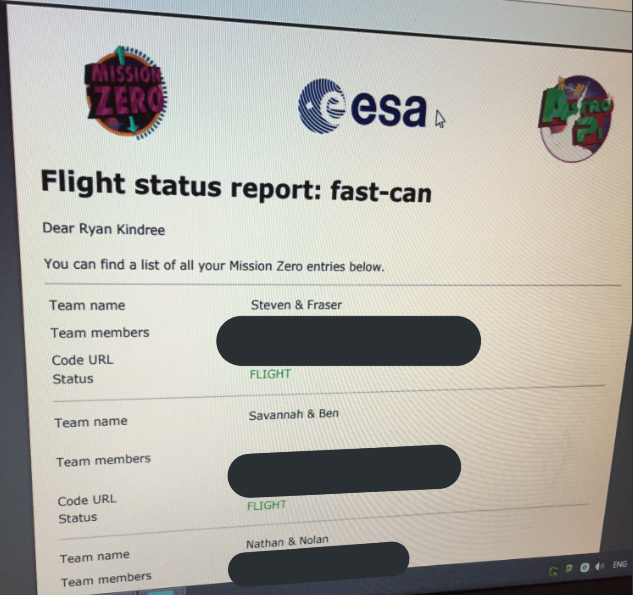Students at a local elementary school are sending messages to the stars.

About 50 students at Tweedsmuir Public School in Grades 4, 5, 7 and 8 worked together to code 18 programs for the Astro Pi: Mission Zero competition.
According to the European Space Agency, Astro Pi is an annual science and coding competition in which student-written code is run on the International Space Station.
“The kids can code an electronic message and a picutre and find out the exact temperature on the space station. So they would code it, and then we submitted them into this program called the Astro Pi: Mission Zero,” said Ryan Kindree, a Grade 4/5 teacher at Tweedsmuir Public School.
Kindree and his colleague Mr. McIntyre discovered the competition at the Google EdTech summit at Clarke Road Secondary School. Once they decided to enter the competition, Kindree’s fourth- and fifth-grade students along with help from McIntyre’s seventh- and eighth-grade students, began coding their messages.
“We just received word that 17 of our 18 submissions have been selected to go into the International Space Station.”
By Feb. 14, Kindree said all of their messages will have gone across the space station. Once the messages have been received, each student will receive an electronic certificate showing the exact date and time their program went on the International Space Station.
To learn more about Astro Pi: Mission Zero, click here.




Comments